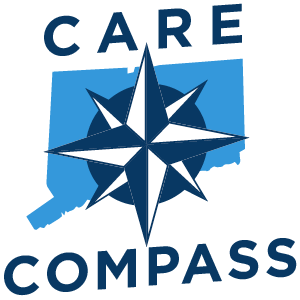Transitioning to Medicare
Medicare and You
Medicare is a federal health care insurance program for people age 65 and older. The age at which you are eligible for Social Security may be higher than age 65, depending on the year in which you were born. While your Social Security retirement age may be higher than age 65, your eligibility for Medicare starts at age 65. Medicare enrollment is required for anyone who is eligible.
You May Be Missing Out on Additional Benefits
People younger than age 65 may also qualify for Medicare and Social Security Disability Insurance (SSDI) monthly cash benefits if the Social Security Administration finds that your health conditions meet their standard for disability. If you are eligible, these benefits may provide you with additional income from Social Security, as well as additional health care benefits available through Medicare, while continuing your benefits and maintaining your eligibility through the state. This offers additional benefits to you and provides a mutual benefit for the state.
The State of Connecticut has partnered with Public Consulting Group, Inc. (PCG), to assist our members with SSDI applications and Medicare enrollment, at no cost to our members. PCG combines a wealth of knowledge and expertise, with a hands-on, customer-focused approach, to help you file your SSDI application, and when successful, assist with early Medicare enrollment. PCG’s staff will guide you, step-by-step, through the process. If you or a dependent is under age 65 and you/they feel you may be eligible for Social Security Disability Insurance, please call PCG at 800-805-8329. If you or a dependent is notified that you are eligible for Medicare, regardless of your/their age, contact the State of Connecticut Retiree Health Insurance Unit at 860-702-3533.
Note
If you or a dependent was eligible for Medicare at age 65 or earlier due to a disability, but you did not enroll in Medicare Part A and/or Part B, the Social Security Administration may assess a late enrollment penalty for each year in which you were eligible but failed to enroll. You will still be required to enroll in Medicare Part A and Part B in order to receive coverage through the State of Connecticut Retiree Health Plan, even if you are assessed a penalty.
Medicare Part A and Part B
Medicare coverage has various parts. Medicare Part A (hospital care) is free and enrollment is automatic if you are eligible for Medicare. You must enroll in Medicare Part B (physician services) and pay a monthly premium. It is essential that you enroll in Medicare Parts A and B for the first of the month you are first eligible for enrollment. Typically, this is the first of the month in which you turn 65. We recommend that you contact Medicare to begin the enrollment process at least three months before your 65th birthday. Failing to do so will result in a disruption in your health coverage.
Note: If you are not eligible for premium-free Medicare Part A, you are not required to enroll in Part A. If this is the case, you must submit a statement to the Retiree Health Insurance Unit from the Social Security Administration verifying that you are not eligible for premium-free Medicare Part A. You are still required to enroll in Medicare Part B, even if you are not eligible for Part A.
Once You Enroll in Medicare
As a State of Connecticut Retiree Health Plan member, when you reach age 65, the state will enroll you automatically in the Aetna Group Medicare Advantage (PPO) plan. Your state-sponsored medical and prescription coverage through the Aetna Group Medicare Advantage (PPO) plan will become your only medical and prescription plan.
Just before your 65th birthday, you will receive a letter from the Retiree Health Insurance Unit with more information about the Aetna Group Medicare Advantage (PPO) plan. Be sure to send the Retiree Health Insurance Unit a copy of your red, white and blue Medicare card. Your standard premium for Medicare Part B will be reimbursed by the state starting on the date a copy of your Medicare Part B card is received by the Retiree Health Insurance Unit. Medicare premiums paid before a copy of your card is received will not be reimbursed. Effective January 1, 2023, the standard Medicare Part B premium will be $164.90.
You may be required to pay more than the standard premium or an income-related monthly adjustment amount (IRMAA) for Medicare Parts B and D in addition to the standard premium. Social Security will advise you by letter annually if you are required to pay a higher rate. IMPORTANT: To receive full reimbursement, send a copy of this letter, along with a copy of your red, white and blue Medicare card, to the Retiree Health Insurance Unit.
Note: If you lose eligibility for Medicare, you MUST contact the Retiree Health Insurance Unit right away to avoid a disruption in your coverage under the State of Connecticut Retiree Health Plan.
